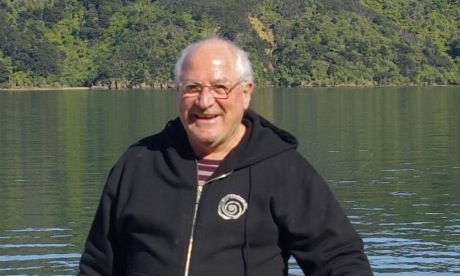I don’t care how long a person’s hair is. As one of my favourite TV characters once said, “Sit, stand, burn to the ground for all I care.”
But I am wondering why this skirmish between Lucan Battison and St John’s College over hair length caused such a stir?
Why is it that a disagreement between a school and one of its students in a provincial town in a tiny country at the bottom of the world should cause such a tidal wave of chatter?
It featured all week on the front page of several of New Zealand’s metropolitan newspapers.
It filled the talkback chat and the blogosphere. It even sent ripples out to England, Japan, the USA and elsewhere.
Of course the haircut war is an eternal warfare. There is no end in sight.
When I was a schoolboy the school sent students home because their hair was too short. Crew cuts were the fashion statement of the day. One fortunate guy who shaved his head earned himself a holiday until his hair grew again.
Later, I became a schoolteacher and we sent people home because their hair was too long. As we morphed into the austere 90s short was again the problem.
Now the possibilities are endless. Hair can be too short. It can be too long. It can be green, red or rainbow. It can have names or designs carved into it. You can make it took like a rooster’s comb and add a safety pin through your nose for good measure.
It is easy to blame a cynical media by saying this kind of story sells papers. But we the readers are the real culprits. The story would not sell if we did not want to read about it.
And yes, I did want to read about it, I became fascinated by it, but why?
Well there is the Tiananmen Square syndrome, the lonely individual standing in front of the mighty tank. We do love the little kiwi battler.
The student was already a minor celeb. He had featured in a good news story after saving someone from drowning. Now here he is standing alone in front of the mighty educational institution.
Then there were the delightful incongruities: the photo of the board chairman as a school boy sporting long locks; the student and his dad all dressed up in suits and ties with their hair neatly groomed for the appearance in court.
But beyond that there remains something more primal – hair “censored and shaved, controlled and suppressed” as the Australian poet and cartoonist Michael Leunig wrote in his prayer “Giving thank for the mystery of hair.”
Hair, says Leunig, is
“Complex and wild; Reminding us softly
That we might be animals.
Growing and growing
‘Til the day that we die.
And the day after so they say”
Becoming an adult requires a rite of passage, a journey from dependence to autonomy. And on that journey you have to challenge the rules.
A wise old teacher once told me we need a few unimportant rules for people to rebel against. He suggested we make smoking compulsory and forbid the eating of broccoli.
Then, he said, we would be picking up broccoli stalks rather than cigarette butts behind the gym.
Hair is so primal, it is not surprising that it became the battleground on which we wage our personal war of independence.
The school was right; it is the school’s job to require compliance.
The student was right; it is a young man’s job to test the boundaries. This is the way a human being finds a healthy balance between independence and belonging.
Conflict and tension are not always bad things. They can help us to learn and to change.
You can have peace only if one side wins and the other loses.
If the institutions always win we have a political dictatorship.
If the institutions never win we have another kind of dictatorship called chaos.
When chaos rules there is just one rule – the survival of the fittest; the powerful prevail and gentle people go under.
So long may the hairy battle continue.
Denis O’Hagan is a Marist priest. He is the editor of CathNews New Zealand, and former schoolteacher. He began his teaching career with a one-term stint at St John’s College Hastings. At the time he had long hair, now he hasn’t got any hair. It’s neither here nor there.
